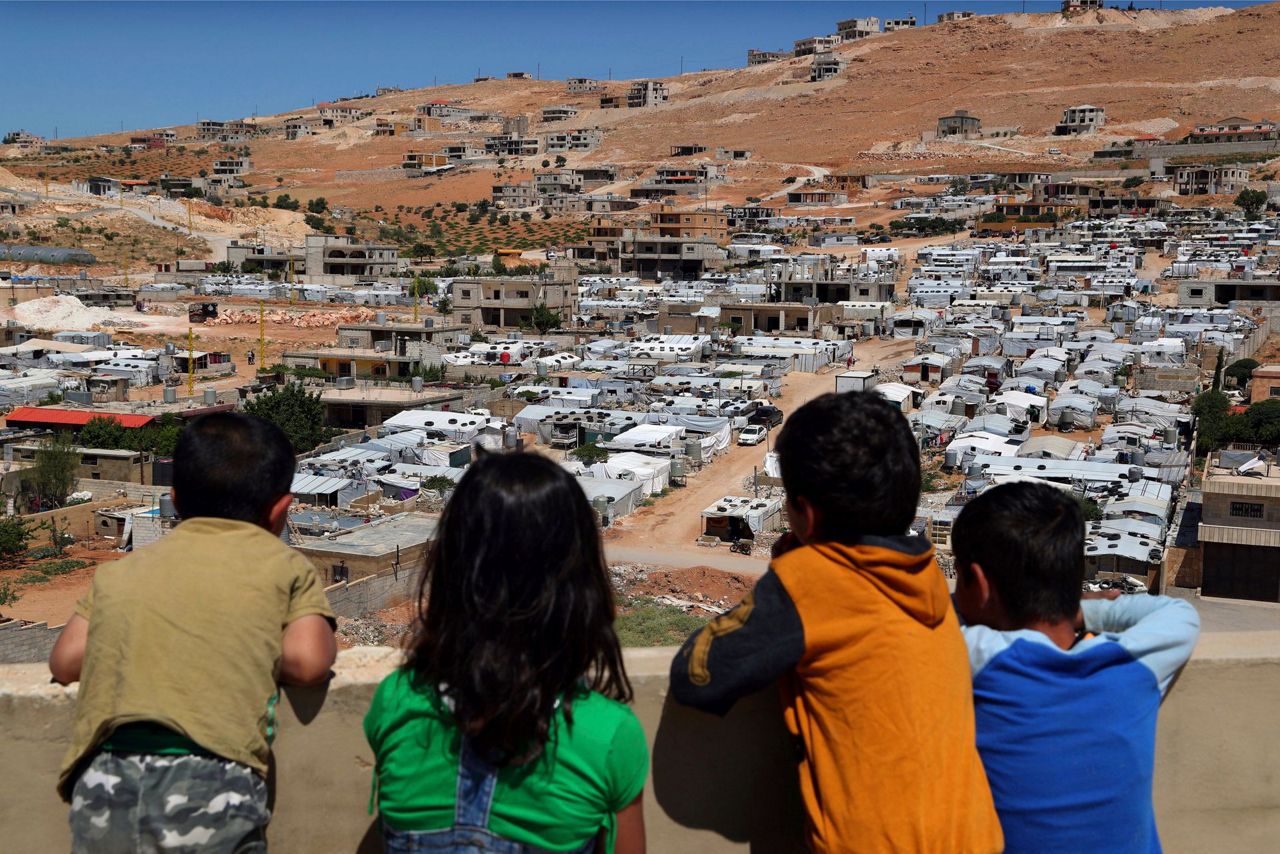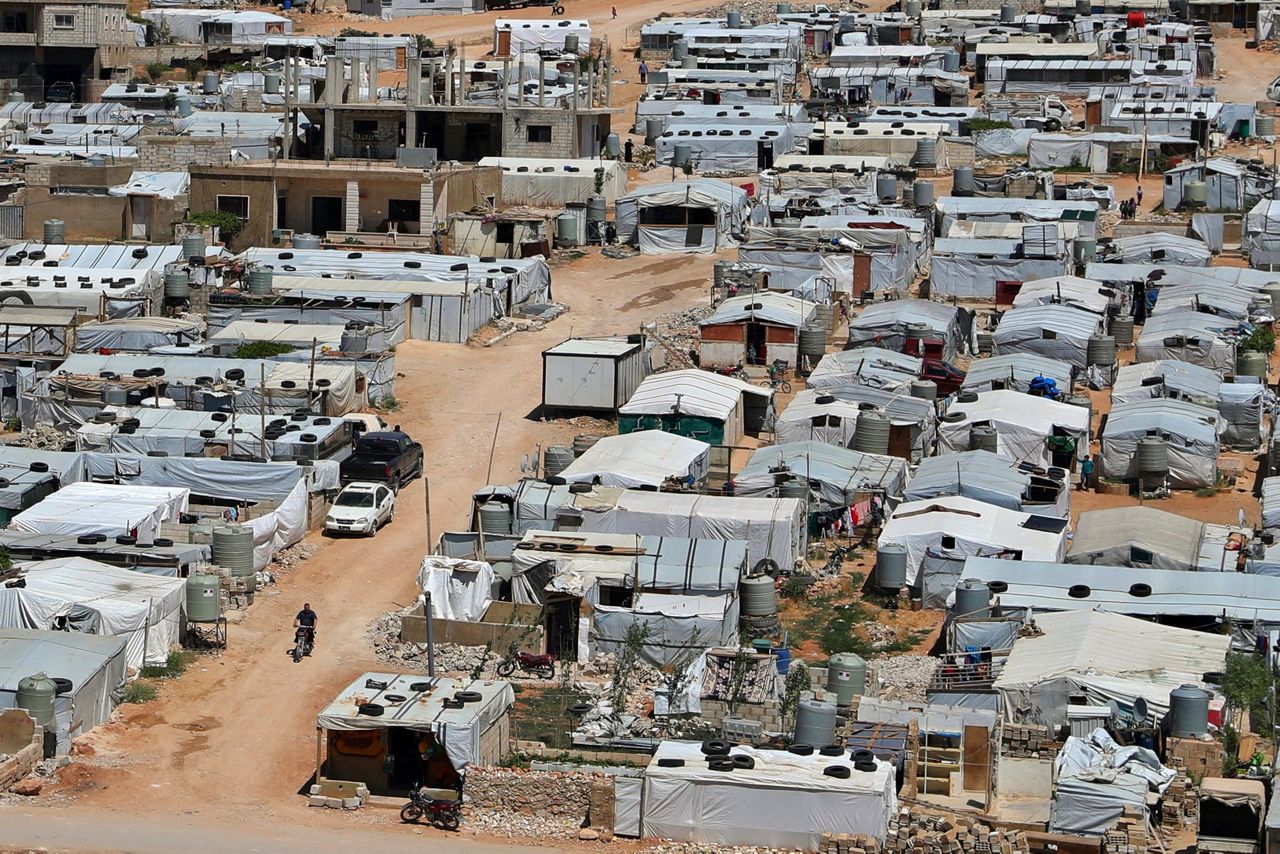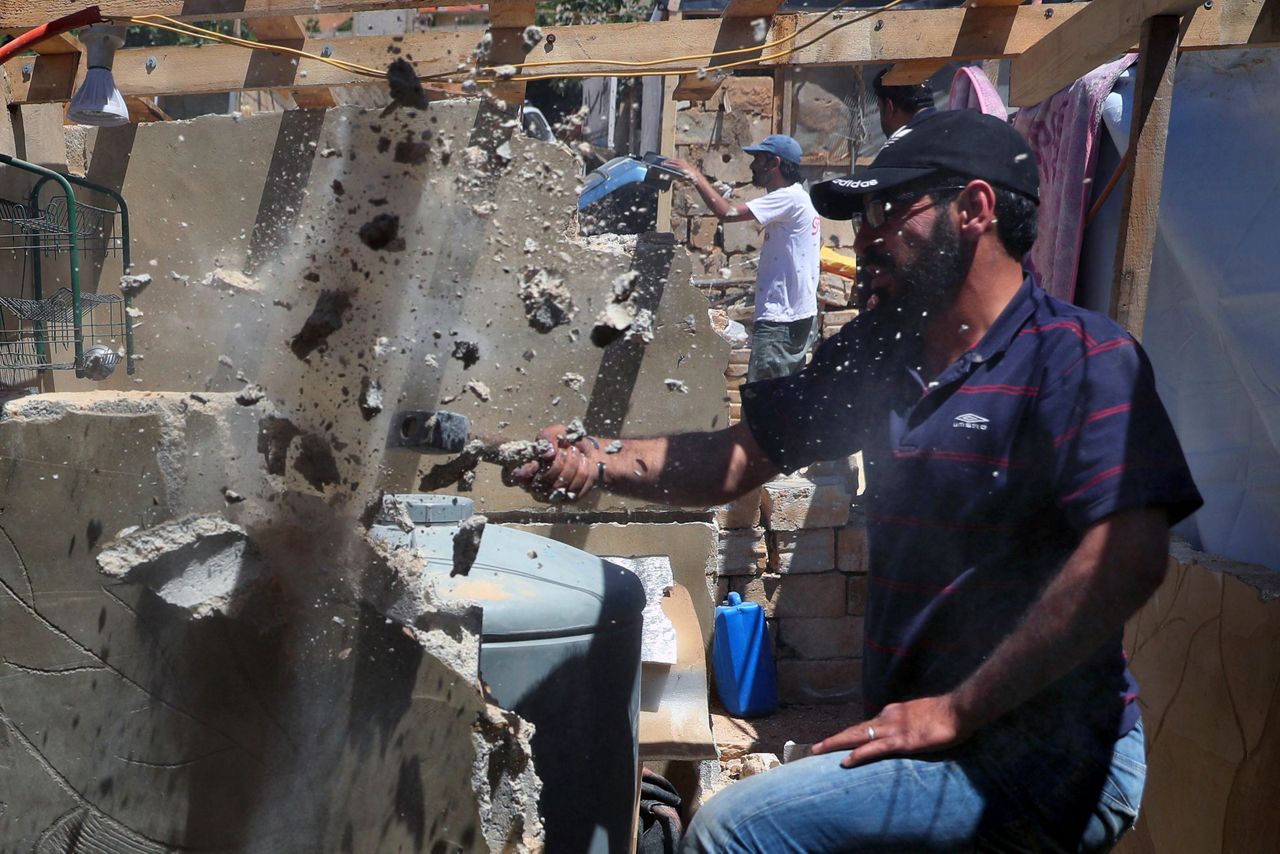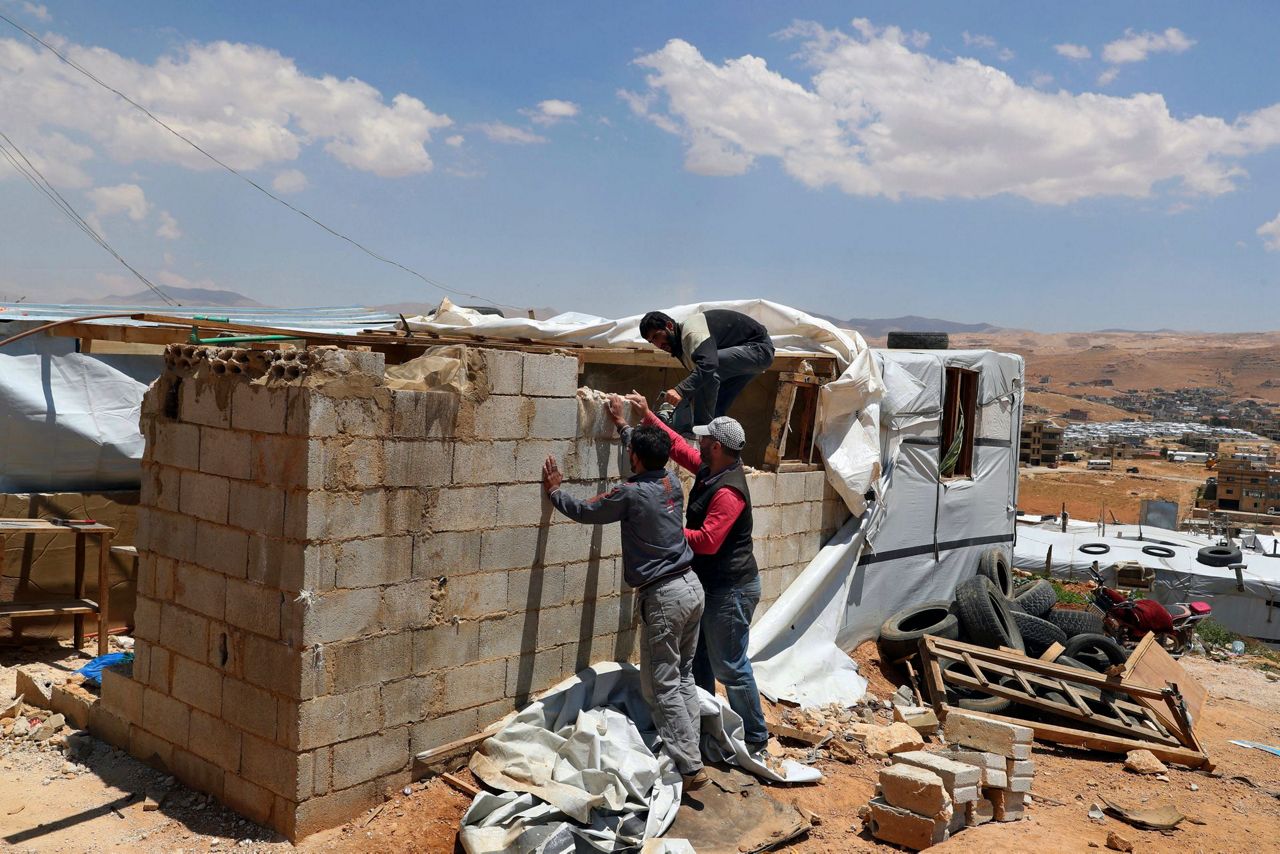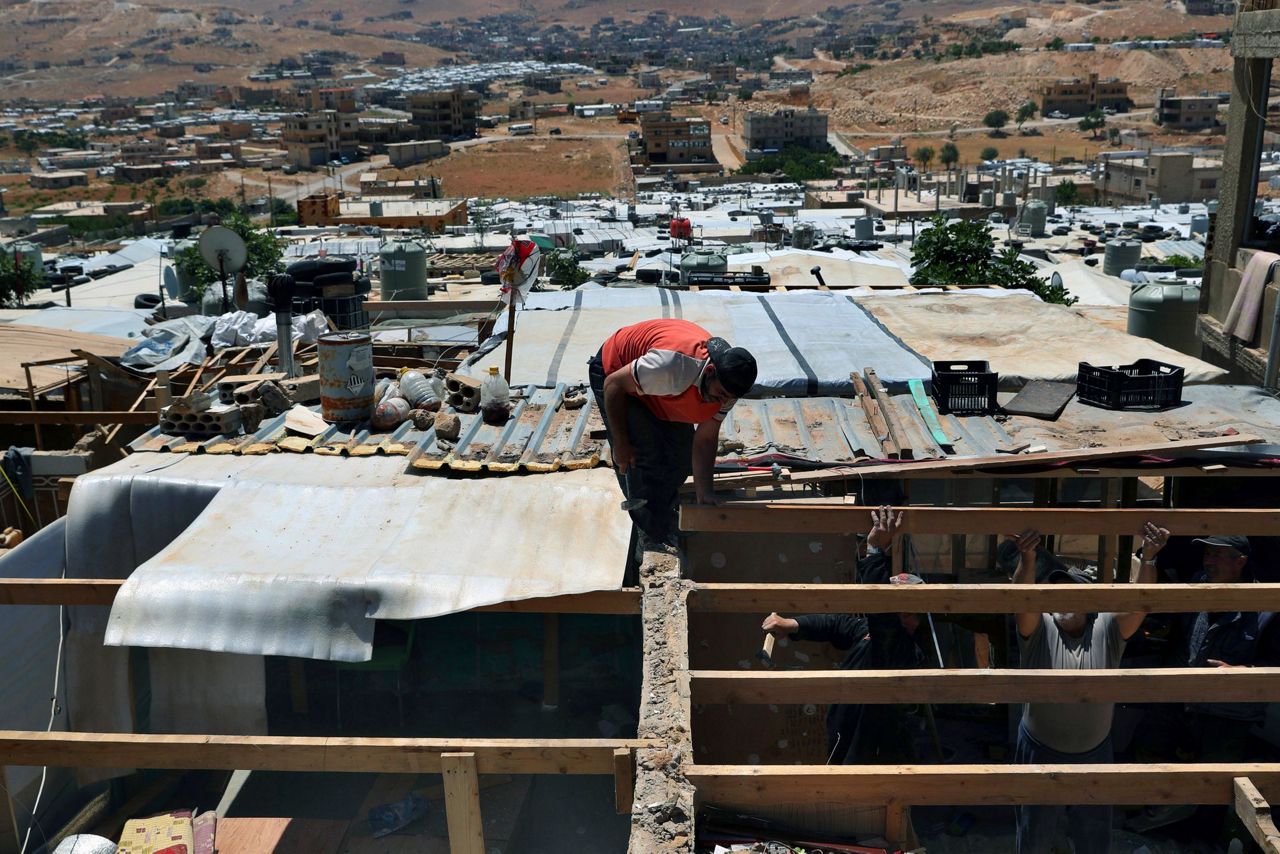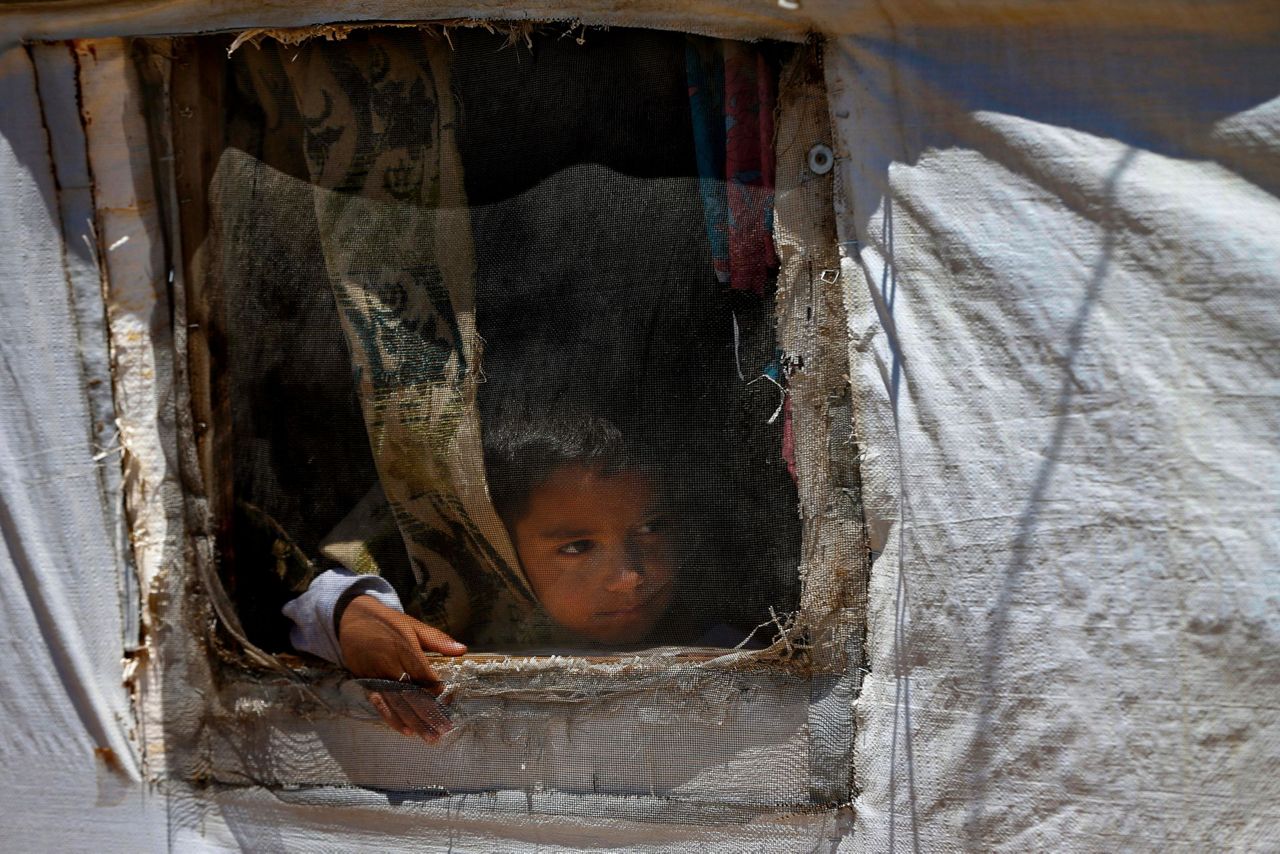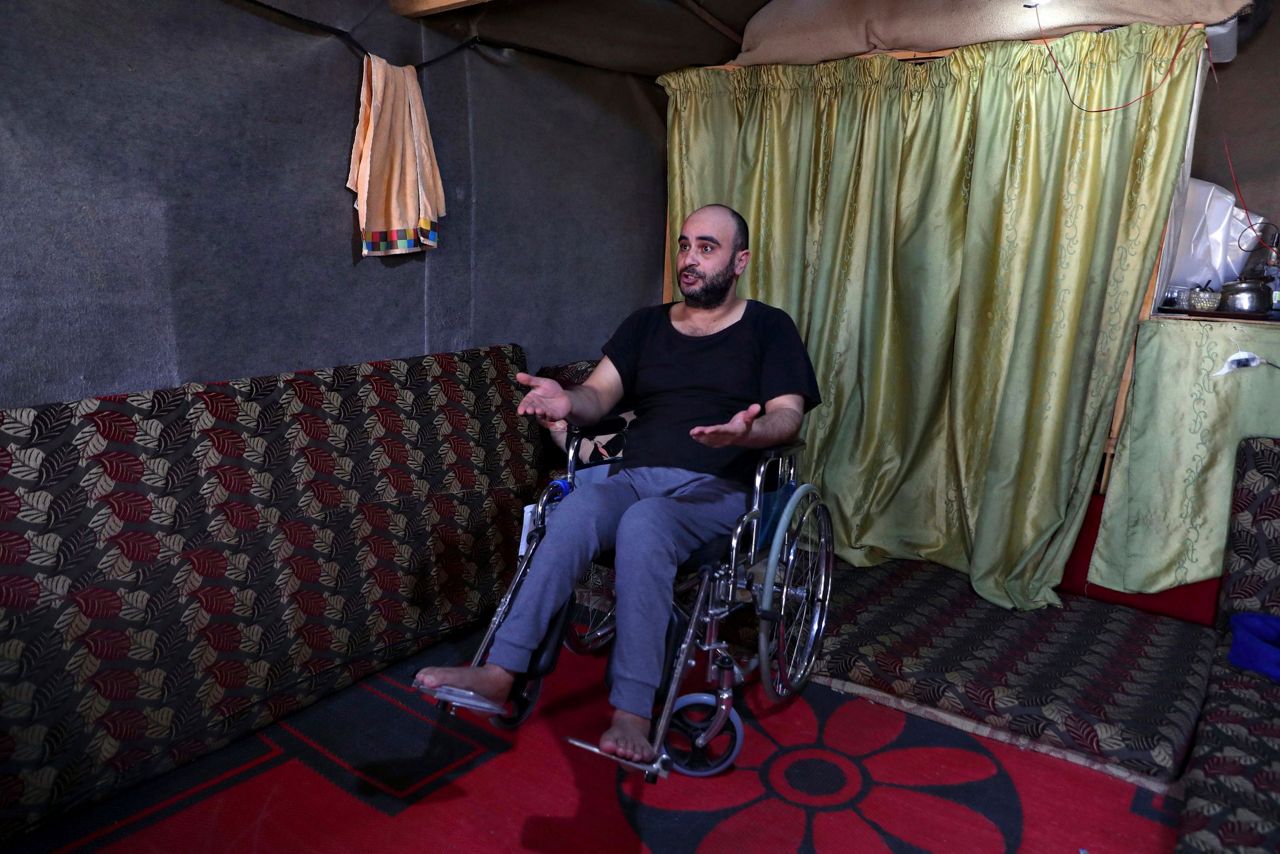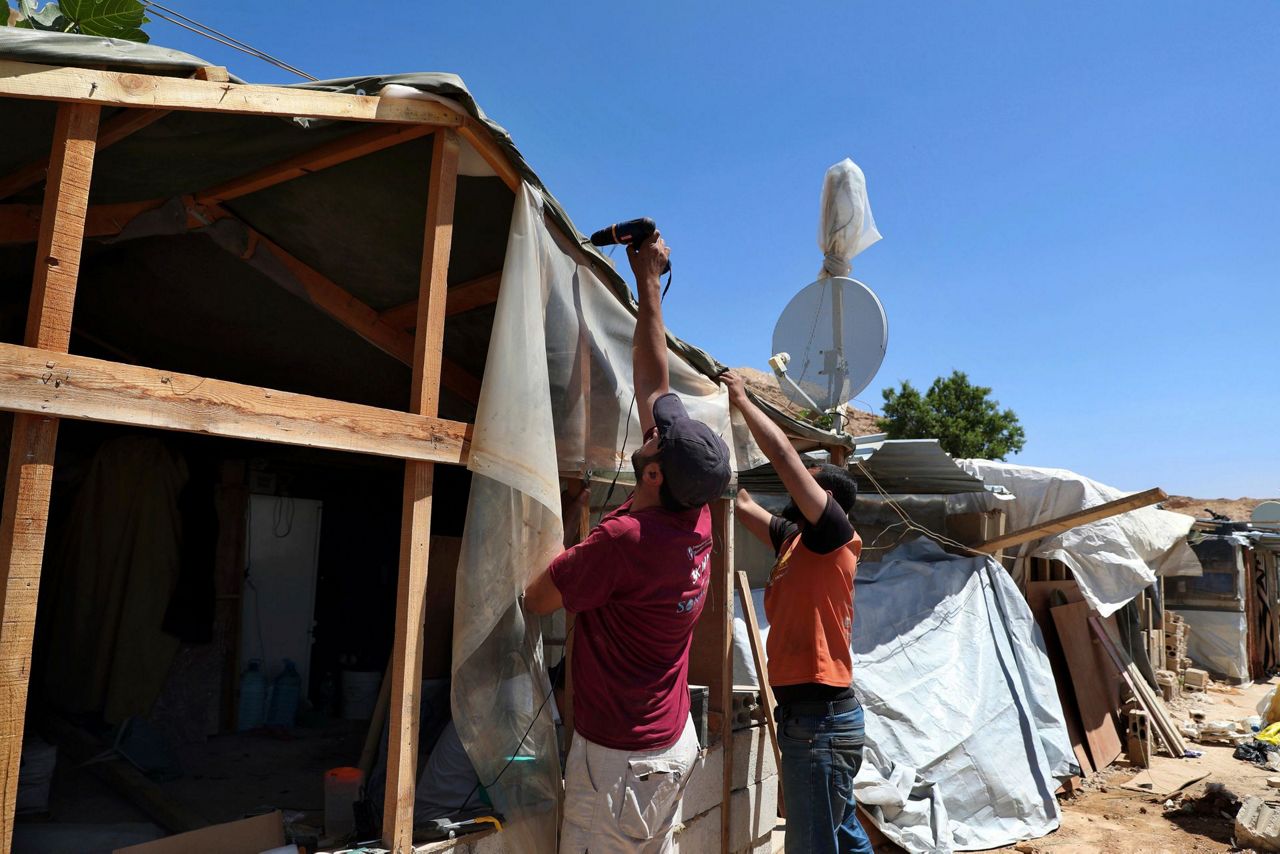ARSAL, Lebanon (AP) — Lebanese authorities are making their most aggressive campaign yet for Syrian refugees to return home and are taking action to ensure they can't put down roots.
Mirroring the rise of anti-migrant sentiment in Europe and around the world, some in Lebanon say that after eight years of war in neighboring Syria they have had enough of the burden of hosting the highest concentration of refugees per capita in the world — 1 million amid a Lebanese population of nearly 5 million — especially at a time when they are facing austerity measures and a weakened economy.
Anti-refugee sentiment in Lebanon has waxed and waned in the past. It's been persistent but limited among a public torn by conflicting feelings — resentment over past domination by Syria and worry over the refugees' impact on their country's delicate sectarian balance, but also sympathy for the refugees amid memories of their own displacement during Lebanon's long civil war.
But this time a rising star in the country's politics has latched onto the issue. Foreign Minister Gebran Bassil leads the campaign, saying Syrians should return home and using nationalist language, like saying the "genetic distinction" of Lebanese will unite them to confront the refugee issue.
During one rally organized by Bassil's party this month — held under the slogan of "Employ a Lebanese" — protesters chanted, "Syria get out." Some attempted to storm a shop run by a Syrian, sparking a scuffle. Posters have popped up in streets and online calling on residents to report any Syrian working without a permit.
The tensions point to how a backlash in host countries burdened by intractable refugee situations intertwines with local politics. Numbers of displaced worldwide have swelled to record levels. The U.N. refugee agency said Wednesday 71 million people are uprooted from their homes as of this year — 26 million of them refugees, double the number 20 years ago.
"Out of this grim number, Lebanon stands out as the country that has the highest number of refugees per capita," said Mireille Girard, the UNHCR representative in Lebanon. "It is a huge responsibility that Lebanon is shouldering and the whole world has to show solidarity with the countries that are in the front of refugee flow."
Allies of Bassil in the government have begun enforcing laws that were previously rarely implemented, shutting down shops owned by or employing Syrians without permits and ordering the demolition of anything in refugee camps that could be a permanent home.
The refugees are trying to weather the storm.
In the town of Arsal, near the Syrian border, where 60,000 refugees live in informal camps set up in the fields, Syrians have been tearing down brick and concrete walls they had added to their shacks of canvas, sheet metal and plastic, trying to make them able to withstand the harsh winters in the mountainous area. The military gave them until July 1 to remove any wall taller than waist high.
The Syrians said no matter how much authorities squeeze them, they have no choice but to stay.
"They think a concrete block is what's keeping us here?" one woman, Um Hassan, said angrily. She said she can't go back because her sons will be drafted into the military of Syrian President Bashar Assad. The demolition order, she said, left her and her family sleeping without a roof over their head for over a week.
Most Syrians who came to Lebanon since 2011 were impoverished and dispossessed. Despite years of receiving aid, 51 percent of Syrian refugee families survive on less than $3 a day and 88 percent of households are in debt. Of more than 660,000 school-aged Syrians in Lebanon, 54% are not enrolled in formal education and an estimated 40% remain out of any kind of certified schooling.
Many Lebanese, in turn, complain that — despite $6 billion of foreign aid invested to support Lebanon — the flood of refugees has overwhelmed schools and the already debilitated infrastructure, increased rents and forced Lebanese to compete with cheap Syrian labor. Some are resentful of aid stipends some Syrians receive, pointing out that they don't pay taxes and often work illegally as well.
Lebanese face an upcoming year of austerity measures, and critics say politicians are using the Syrians as a scapegoat for a damaged economy and endemic corruption.
"The Lebanese public is frustrated and ... wants anything to dump all their anger on. So who is the weakest, the refugee," said journalist Diana Moukalled.
Bassil is the leader of the largest Christian party in parliament and the government and the son-in-law of the country's president. He has been mobilizing a popular base and boosting his credentials as the prime protector of Christians — some believe with the aim of one day replacing his 84-year father in law, President Michel Aoun.
He has popularized the term "Lebanon above all," while warning of an "international conspiracy" to settle Syrians in Lebanon, like what happened with the Palestinian refugees. The influx of Palestinian refugees, who fled or were driven out during the 1948 war surrounding the creation of Israel, upset Lebanon's sectarian balance, and armed Palestinian factions were a key factor in the 1975-1990 civil war. After decades in Lebanon, the Palestinians' numbers have dwindled to about 175,000, living in squalid camps with no access to public services, limited employment opportunities and no rights to ownership or protections.
While pushing at home for implementation of laws against refugees, Bassil has lobbied abroad for increased aid to Lebanon and an organized return of Syrians.
"The one who speaks of refugees returning is not a racist or a fascist, and those accusing us of racism either benefit (from the issue) or are conspirators," he said during a recent conference.
He has gained ground in a political sphere divided over refugees and the Syrian war in general.
Bassil's ally, Hezbollah, has backed Assad's government in the fight against rebels. Bassil's political opponents — including other Christian parties and the main Muslim Sunni party led by Prime Minister Saad Hariri — have sided with Syria's opposition. Hariri called Bassil's rhetoric "racist," and the prime minister and his allies have pushed against his campaign.
At a recent small rally in Beirut, politicians, activists and Syrians held banners against hate speech. Paula Yacoubian, an independent Armenian Christian politician at the rally, said the campaign to "dehumanize" refugees is irresponsible.
"This is destructive and, even if it brings someone popularity for now, in the long run it is very harmful, for Lebanon and the Lebanese first of all," she said.
Nasser Yassin, a professor of public policy at the American University of Beirut, said he doesn't believe there will be a widespread public backlash against the refugees. But the rise of similar sentiments around the world makes it harder to challenge.
"If Europe is actually violating human rights when it comes to pushing people trying to cross the Mediterranean back to the Libyan militias, they will turn a blind eye or (be) silent when the Lebanese government is applying it," he said.
The campaign is not simply political rhetoric.
Local vigilantes recently set fire to three tents in a refugee camp in the eastern town of Deir al-Ahmar, and Syrians there scuffled with the Lebanese firefighters, injuring one. An eviction order followed from the municipality, forcing 400 Syrians to move their tents to a new spot.
In a possible violation of its international obligations, Lebanon in April deported at least 16 Syrians, including some registered as refugees, after they arrived in Beirut airport. Human Rights Watch and other groups said some of the deported expressed fear of persecution in Syria and were forced to sign "voluntary" repatriation forms, despite Beirut's commitment not to forcibly return any Syrians.
Lebanese authorities estimate that over 170,000 Syrians have returned to their country between December 2017 and March 2019, many through government-organized bus trips.
Aid groups and many Western countries say conditions are not yet right for refugees' return to Syria, with lack of a political resolution and guarantees for their security.
In Arsal, Abu Fares, an organizer of the Syrian camp, said the campaign to apply labor and building laws really aims to harass Syrians into returning home. He is campaigning for an exemption or longer grace period for the disabled or elderly in the camp who can't do their own demolition.
A defector from Syria's police force, Abu Fares said he can't fathom returning to Syria without a political settlement, a pardon and new laws.
"But if they can't have us here, just say it and take us out of Lebanon" to another country besides Syria, he said.
Some have succumbed to pressure. Arsal's mayor, Bassel al-Hujairi, said nearly 200 Syrians registered to return to Syria after the orders to bring down the walls.
Abu Ossama, a 74-year old Syrian and a retired army general, said he put his name on the list.
"I used to be safe here. It is not anymore," he said. "God will be my protector."
Copyright 2019 The Associated Press. All rights reserved. This material may not be published, broadcast, rewritten or redistributed.



